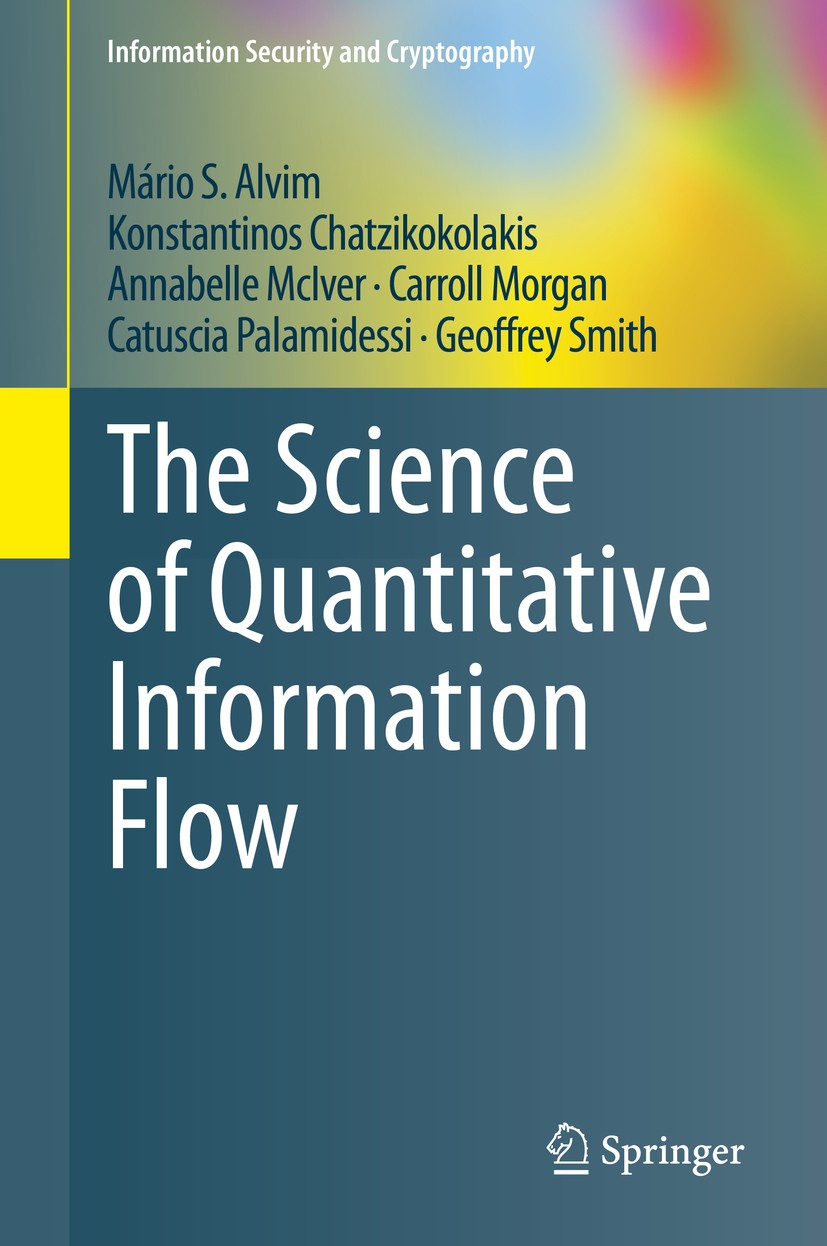| 书目名称 | The Science of Quantitative Information Flow |
| 编辑 | Mário S. Alvim,Konstantinos Chatzikokolakis,Geoffr |
| 视频video | http://file.papertrans.cn/920/919324/919324.mp4 |
| 概述 | Computer systems that process sensitive information should preserve that information‘s confidentiality, but our current cyber-infrastructure is failing to achieve this goal: reports of massive-scale i |
| 丛书名称 | Information Security and Cryptography |
| 图书封面 |  |
| 描述 | .This book presents a comprehensive mathematical theory that explains precisely what information flow is, how it can be assessed quantitatively – so bringing precise meaning to the intuition that certain information leaks are small enough to be tolerated – and how systems can be constructed that achieve rigorous, quantitative information-flow guarantees in those terms. It addresses the fundamental challenge that functional and practical requirements frequently conflict with the goal of preserving confidentiality, making perfect security unattainable..Topics include: a systematic presentation of how unwanted information flow, i.e., "leaks", can be quantified in operationally significant ways and then bounded, both with respect to estimated benefit for an attacking adversary and by comparisons between alternative implementations; a detailed study of capacity, refinement, and Dalenius leakage, supporting robust leakage assessments; a unification of information-theoretic channels and information-leaking sequential programs within the same framework; and a collection of case studies, showing how the theory can be applied to interesting realistic scenarios..The text is unified, self-cont |
| 出版日期 | Textbook 2020 |
| 关键词 | Computer Security; Disorder Measures; Hidden Markov Models (HMMs); Information Flow; Information Theory; |
| 版次 | 1 |
| doi | https://doi.org/10.1007/978-3-319-96131-6 |
| isbn_ebook | 978-3-319-96131-6Series ISSN 1619-7100 Series E-ISSN 2197-845X |
| issn_series | 1619-7100 |
| copyright | Springer Nature Switzerland AG 2020 |
 |Archiver|手机版|小黑屋|
派博传思国际
( 京公网安备110108008328)
GMT+8, 2026-1-28 22:42
|Archiver|手机版|小黑屋|
派博传思国际
( 京公网安备110108008328)
GMT+8, 2026-1-28 22:42


